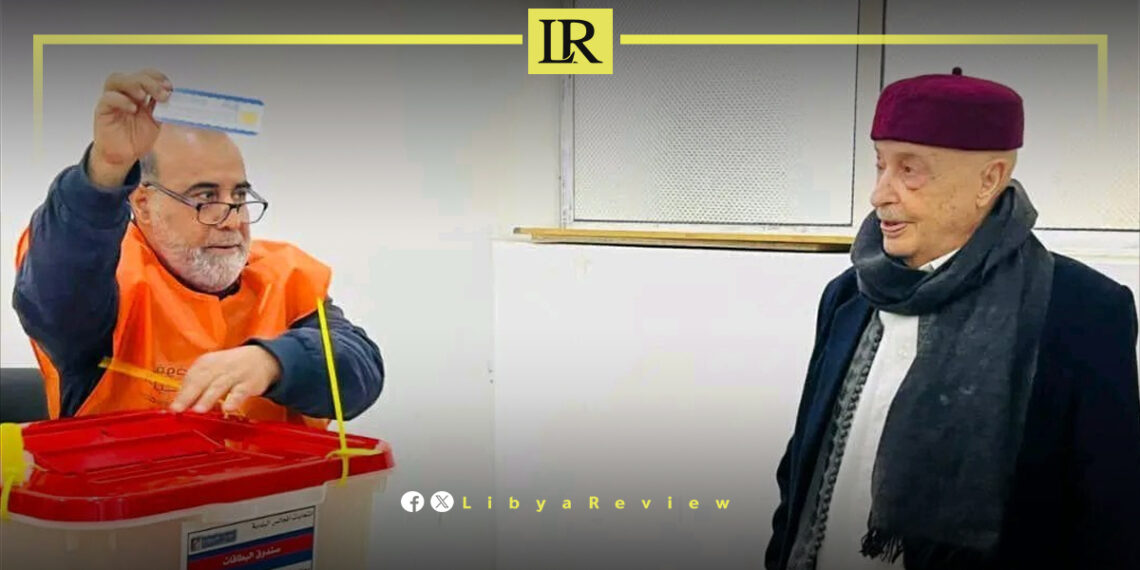Ageela Saleh, Speaker of the Libyan House of Representatives (HoR), cast his vote on Saturday in Qubba, marking an important moment in Libya’s ongoing municipal elections. Saleh’s participation highlights the significance of this democratic process as a step toward building a stable and unified Libyan state.
These elections, taking place across 58 municipalities, involve 352 polling centers and over 186,000 registered voters. Libyan citizens are electing local representatives to address regional needs and foster development, signaling the country’s ongoing efforts to decentralize governance and empower local communities.
Saleh expressed his optimism about the elections’ success and urged all eligible voters to participate actively. He emphasized the critical role of local councils in advancing development, strengthening governance, and contributing to Libya’s stability. Saleh also inspected the election proceedings in Qubba, calling the event a significant milestone in Libya’s path toward political and economic recovery.
Polling stations opened at 9:00 a.m. and will remain operational until 6:00 p.m., giving voters ample time to cast their ballots. The High National Election Commission (HNEC) has encouraged registered voters who have received their election cards to fulfill their civic responsibility by heading to the polls.
The elections are part of Libya’s broader strategy to rebuild institutions and promote grassroots democracy. By establishing local governance systems, the elections aim to address urgent community needs while fostering trust in Libya’s political institutions.
These municipal elections come at a critical time for Libya, a country still recovering from years of division and conflict. The democratic process is expected to strengthen local governance structures, which are seen as vital to addressing challenges such as economic development, public services, and regional disparities.


